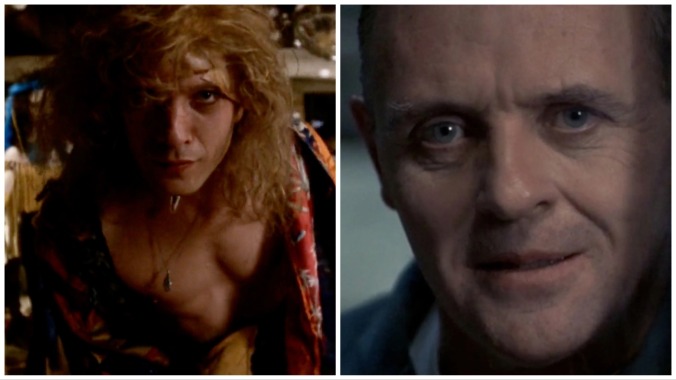How Anthony Hopkins became the ultimate movie villain in only 16 minutes
Hopkins' appearance in The Silence Of The Lambs is short, iconic, and won him an Oscar—here's our homage to the GOAT villain, Hannibal Lecter

Twenty years ago, the listicle-addicted American Film Institute named Anthony Hopkins’ cannibalistic serial killer Hannibal Lecter the greatest villain in American cinema, on a list including Norman Bates, Darth Vader, and the Wicked Witch of the West as runners up. That’s a highly disputable claim (Boris Karloff in Frankenstein, anyone?) and it predates Heath Ledger’s Joker, whom many might vote for today.
But after The Silence Of The Lambs won the Oscar for Best Picture, Lecter became a cottage industry, whose onscreen “kill count” is substantially higher than Freddy Krueger’s, if you count their respective TV series. What sickness explains such fascination with a character who gourmet-cooks humans, and how did Hopkins tap into those fascinations considering he was only in the movie for 16 minutes?
First and foremost, Anthony Hopkins is a great actor—a point so obvious it’s tempting to park it there, without even exploring the specifics of his versatility in Lambs. But his performance works so well because it’s simultaneously over the top and subtle as hell. His inspiration was the HAL 9000 computer in Stanley Kubrick’s 2001: A Space Odyssey—Hal’s blank politeness, coupled with an undercurrent of slow-growing psychosis. It’s an astute choice, because the audience can tell Hopkins is underplaying, and they know a fuse is lit inside Lecter where they can’t see it, until he finally explodes and overwhelms the movie, all in a little over a quarter-hour.
Throughout the film he reeks of intellect, and positively salivates tropes that pop culture associates with malicious genius. He knows his wines and has a weakness for piano concertos. He’s a grotesque parody of a gourmand. He greets the officers he’s about to kill by saying, “Good evening gentlemen,” in the softest tones. He’s playing on a thousand mental levels at once, where even the best of the puny humans surrounding him, specifically FBI trainee Clarice Starling, is maybe playing on five.
Starling can get overlooked in villain-centric conversations about The Silence Of The Lambs. But Foster’s performance is detailed and intricate, and director Jonathan Demme is great at visualizing the psychological reality of a talented woman in a milieu of men. Check out Clarice’s interactions with her seemingly straight arrow boss Jack Crawford (Scott Glenn). Nothing inappropriate is ever said. But Crawford’s hands linger too long at every point of contact, and his eyes are so hooded they feel as though they could be devouring Clarice. Foster performs these scenes with an overlay of caution, as if Clarice is aware of other agendas.
In this context, Clarice’s visitations with Hannibal become a weird courtship. There is mutual respect, immediate fascination, and a sparring of intellects worthy of a 1930s rom-com. The frisson between them is in no way romantic, but they ravish each other in more interesting ways. And while Hopkins’ Lecter attempts to dominate Clarice and make her feel small, when Lecter figures out he can’t, he becomes the only male character in the movie who sees Clarice as an equal.








































